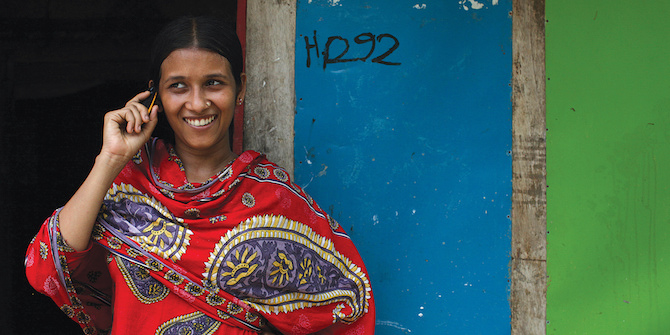To mark the 70th anniversary of India’s Republic Day, the LSE South Asia Centre convened ‘The Indian Republic at 70: Crisis or Continuity’. Sahima Gupta (LSE South Asia Centre Student Ambassador) reports on the event.
Watch a livestream of the discussion
Listen to a recording of the discussion
The chair of the event, Rajesh Venugopal (LSE), began the talk by mentioning that the event marked the 70th anniversary of the Indian constitution. First, he briefly spoke about the chief architect of the Indian constitution, B.R. Ambedkar who is an alumnus of LSE, and acknowledged that the Indian constitution is in deep crisis; undergoing a historic transformation. Further, he commended the extraordinary defiance from people all over the world who are fighting to protect the secularist identity of the country. He then provided an overview of what the discussion was going to entail: a critical examination of where the republic stands today, its historical roots, and future direction.
He first invited, Shruti Kapalia (Cambridge), to share her views on the topic. Kapalia stated that reading the preamble is a way to hold the Modi government accountable for their actions. Historically, the constitution played a vital role at a time when India had just become a fully mandated state. Today, there is a fixation in India on sovereignty, and that is what is really at stake, rather than freedom. The Nehruvian foundations of India are often mocked, and he is represented as an anti-hero. However, the constitution and preamble that is being re-enacted in India actually is based on Gandhian forms of politics, such as mobilisation and fearlessness, which the Modi government has been using to run Indian democracy.
Sharing the difference between Jawaharlal Nehru and Mahatma Gandhi, she argued that the former is often portrayed as the antagonist, but in reality, the real wrongdoer is Gandhi. Taking a critical view, she acknowledged that democracy is in crisis globally. With the advent of Modi, issues surrounding an already problematic democracy were re-opened. Commenting on the protests, India is experiencing a new kind of civil war. With the introduction of CAA, it is a clear sign that India and its democracy needs a remake. Taking a more pessimistic tone on the entire situation, she asserted that Modi is trying to create a fascist kind of regime, and his approval ratings are not coming down.
After this, Basharat Peer (New York Times) was asked to share his thoughts on the anniversary of the constitution. Peer argued that he sees recent events in India as a photographic challenge rather than a structural one. According to Peer, India is at the brink of a significant transformation. Peer argued that during the initial years of the Modi government, it was believed that India would overtake China. However, the decline of India’s economy started with corruption and other scandals long ago. The actions of Congress seem benign in front of the BJP government, he argued. He also questioned why people are surprised about the BJP’s ideology when the RSS website has its philosophy clearly highlighted.
Furthermore, commenting on the conditions of Kashmir, he said that its economy has been devastated, and life in Kashmir is almost like a living prison; given these circumstances, he asked, how is any economic growth going to take place? Moreover, he asserted that the Modi government is not going anywhere and will most likely run India for years without disruption.
Taking a more positive note, as compared to the other two panelists, Mukulika Banerjee (LSE) discussed how the republic of India needs to be reclaimed by people out on the streets. The recent large protests are an attempt to hold the BJP government accountable for their actions. Sharing her experience, she mentioned that never in the history of India have so many people voluntarily recited the preamble. Further, she explained how the current protests have a very different kind of quality; not something she has witnessed in the past decade.
Banerjee discussed the central tenants of Nehru’s ideology, which included the of proper use of constitutional methods and the abstention from religious fanaticism. However, the dismissal of these factors have contributed towards the destruction of India’s credibility. She also acknowledged that elections are a critical aspect of any democracy. However, in the case of India, the secret ballot has been compromised and the election commission of India is faulty with electoral bonds being opaque. The reason why people have taken to the streets, she argued, is because the soul of India has been attacked. By altering a significant article and making religion the basis of citizenship, the Indian government has made a very blatant mistake. Due to these actions, India is not an attractive tourist destination anymore, and the media statists’ show a massive drop in Modi’s popularity.
The discussion was then followed by a Q&A.
Speakers:
Mukulika Banerjee is Director, South Asia Centre, and Associate Professor in Anthropology, LSE;
Shruti Kapila is Lecturer in History, University of Cambridge;
Basharat Peer is Editor (Opinion section), The New York Times.
Chair: Rajesh Venugopal is Associate Professor in International Development, LSE.
This article gives the views of the author, and not the position of the South Asia @ LSE blog, nor of the London School of Economics.







